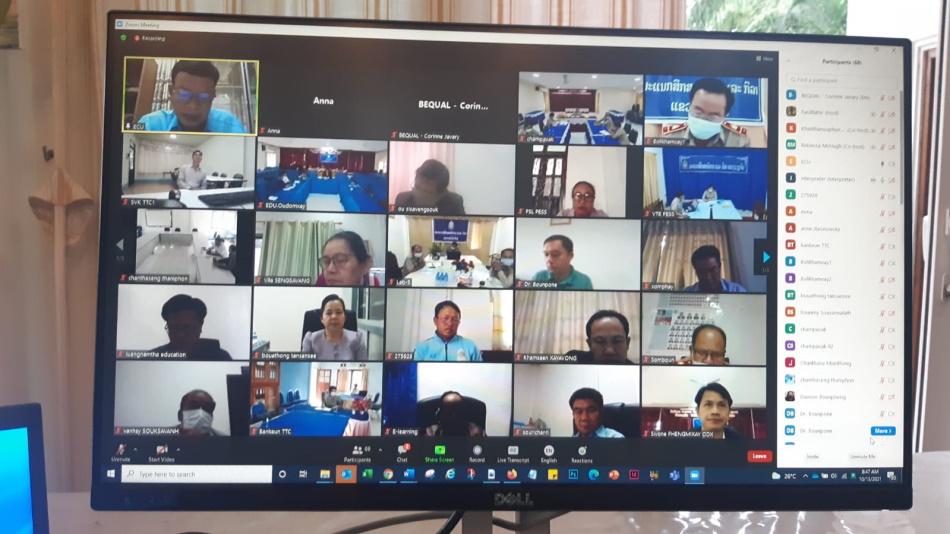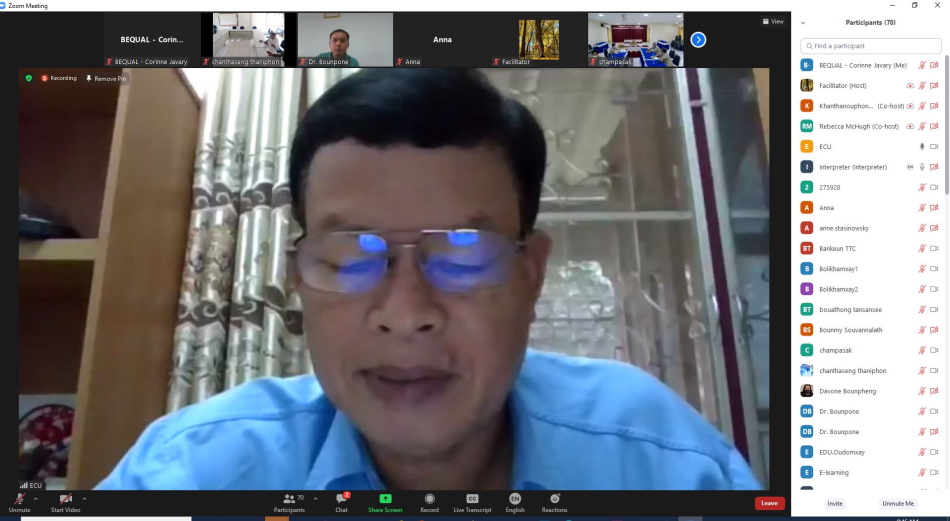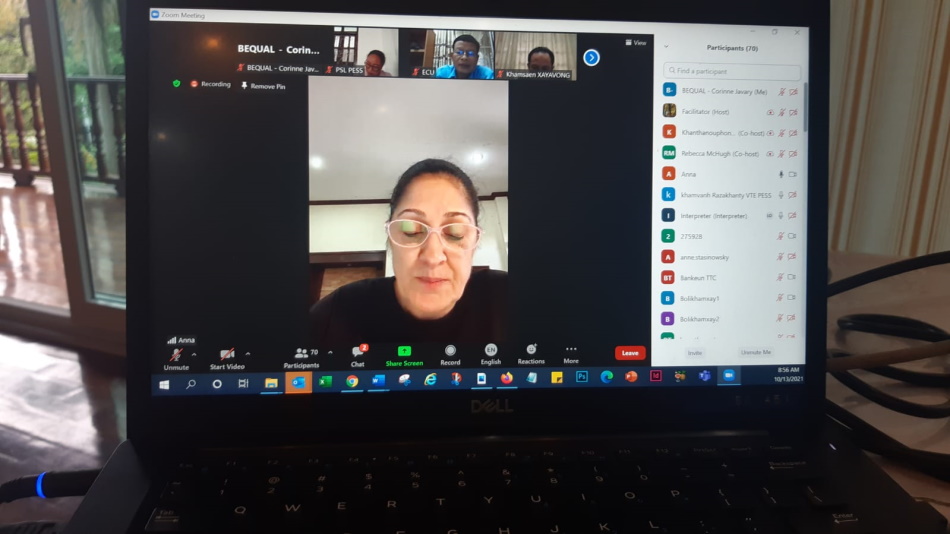New grade 3 materials are in schools, teachers are trained, grade 4 curriculum is in development. However, concerns were raised about schools still being closed
Dr Bounpanh Xaymountry, Director General, Department of Planning, Ministry of Education and Sports (MoES) and Anna Dyason, First Secretary, Department of Foreign Affairs and Trade (DFAT), co-chaired the Basic Education Quality and Access in Lao PDR (BEQUAL) technical meeting on October 13th to discuss progress, challenges, and upcoming activities for the implementation of the new improved primary curriculum.
The meeting was organised fully online to comply with national COVID-19 prevention measures, resulting in more people being able to join than usual. Over 75 representatives from MoES departments, 18 Provincial Education and Sports Services (PESS), 8 Teacher Training Colleges (TTC), line institutes and centers and BEQUAL team members were connected across Laos to share their results and challenges.
Both chairs congratulated participants on their commitment and dedication which has ensured key milestones have been met despite the challenges of COVID-19.
Dr Bounpanh noted that “despite the COVID-19 challenges, everyone has been working hard to find solutions and responses to the difficulties created by the pandemic crisis. The new school year has officially begun, which means a new grade of the revised primary curriculum – grade 3 – has reached schools, and 90% of teachers have been trained in the new pedagogy.” He also thanked DFAT and the Government of Australia for their support to the Health Sector for the roll out of vaccination programs and other initiatives which are already building Government of Laos’ capacity to respond to COVID-19 outbreaks and will ultimately enable easing of lockdown measures.
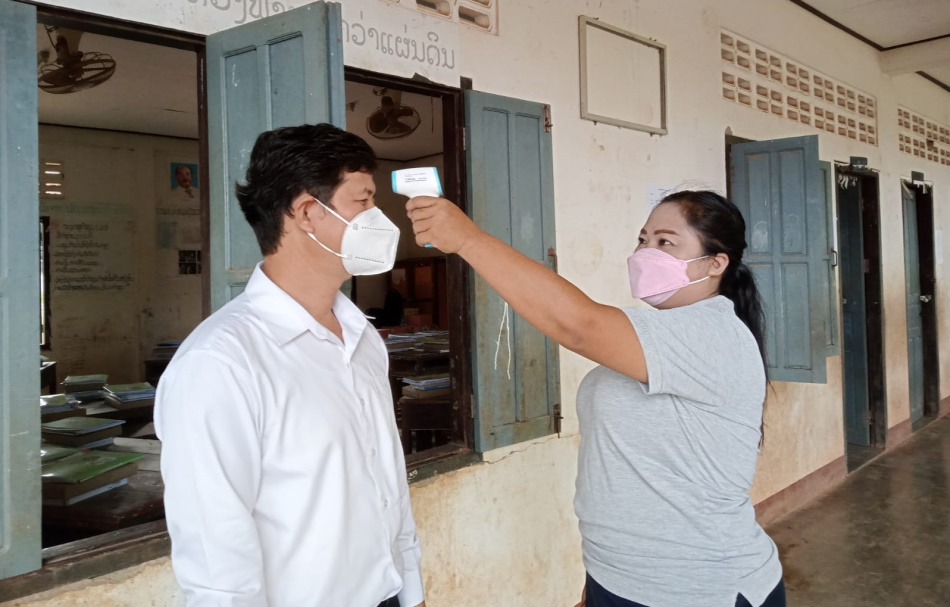
Anna Dyason also praised the efforts and hard work of all. “I would like to start by commending the Ministry at all levels and the BEQUAL team for their ability to quickly adapt and adjust their way of working to minimize the impacts of the recent COVID-19 outbreak on the program implementation plan. Your commitment and dedication have ensured that key program milestones have been met.”
Indeed, despite the lockdown, Australia, through the BEQUAL program, has been able to support the Ministry to complete the printing and distribution of 612,600 Grade 3 curriculum textbooks and teacher guides to districts before the start of the school year, conduct training of 663 trainers and face-to-face induction trainings of up to 9,645 Grade 3 teachers and 366 Pedagogical Advisers for most provinces as planned with good COVID-19 prevention measures in place, continue with Grade 4 curriculum development, and launch the new pre-service curriculum in all TTCs.
The commitment and progress of the program to mainstream Gender and Inclusive Education (G&IE) has been particularly highlighted: a progressive representation of G&IE is integrated in teaching and learning materials, practical guidance on G&IE practices is included in training materials and activities, several trainings on G&IE were organized with MoES media team and all teacher development videos are dubbed in sign language. Moreover, several trial innovations that address barriers to G&IE have been implemented such as the Spoken Lao Pilot for children who don’t speak Lao at home, a blended learning pilot to support access and teaching through online training for participants in restricted or remote areas or the new Role Models docuseries that will feature an inclusive teaching champion.
The participants agreed that the biggest challenge of COVID-19 is the prolonged school closure, and they shared their concerns regarding learning loss and unequal access to remote and online education alternatives. Several PESS noted that parents were not enrolling their children in school and expressed concerns that many students may fully drop-out from school if face-to-face instruction can’t resume soon. Poor internet connection, affordability of online services, lack of devices to connect or unavailability of parents to help very young students with their lessons, creates challenges for online learning and teaching for most primary children. The most disadvantaged students in remote and rural areas, girls, and students with disabilities are even more affected. “Face-to-face teaching is the best option wherever possible, but we hope that in situations where schools cannot open yet, teachers are able to provide remote and online learning alternatives for their students” said Dr Bounpanh.
At the end of the meeting, Australia and MoES endorsed the implementation plan for the remaining months of Phase I of BEQUAL project until June 2022. Dr Bounpanh concluded that “Phase 1 of the BEQUAL program will end on 30 June 2022 and there are many positive signs that the work we have been doing together to improve curriculum resources and teaching practices is starting to have an effect. This is a critical time to discuss what we have learned through Phase 1 implementation so that plans for Phase 2 build on our successes and address the challenges we have identified.”
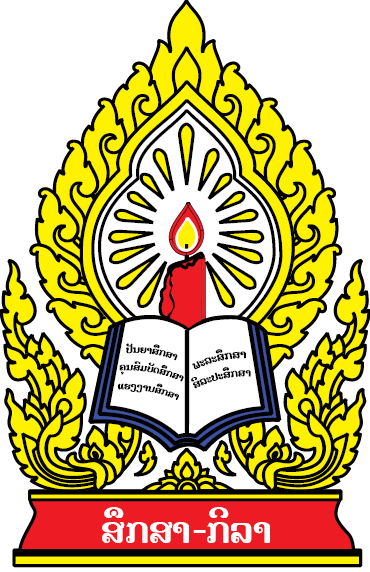
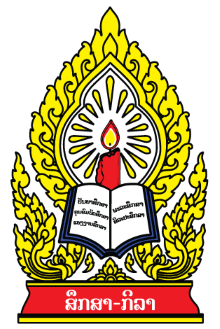


 ພາສາລາວ
ພາສາລາວ
